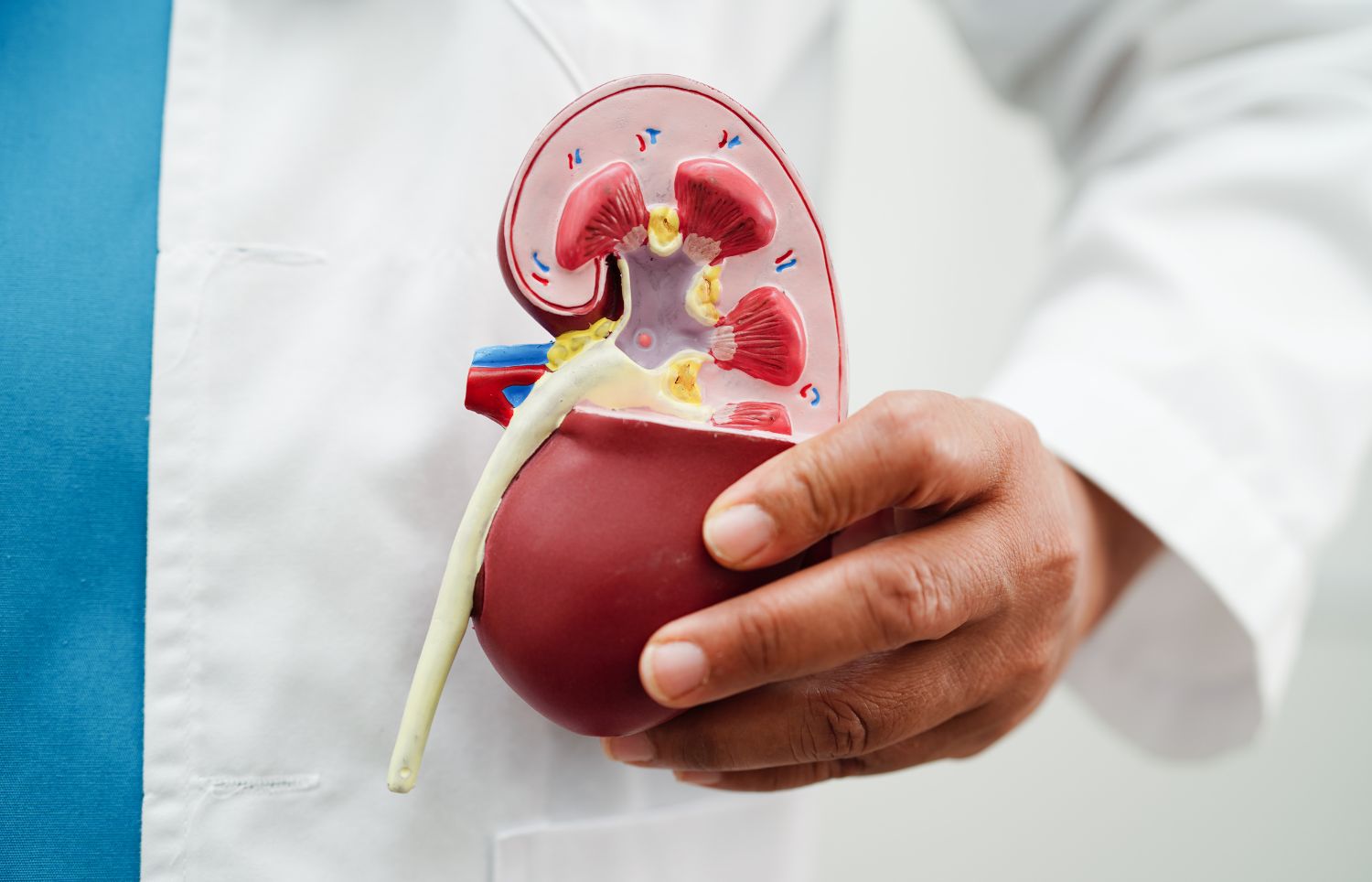Alzheimer’s Disease is the most common form of dementia, which is caused by a physical disease of the brain. It is a progressive illness, which causes loss of memory, judgment and language. Between 60 – 70% of those with Alzheimer’s will go on to suffer from incontinence issues. Incontinence should not be considered an inevitable part of this illness; treatments are available to help with this condition and any issues should be investigated by your GP to rule out any separate conditions that may be affecting this.
Symptoms Of Alzheimer’s Disease
In Alzheimer’s Disease proteins build up in the brain and form a ‘plaque’ which damages the nerve cells in the brain and destroys brain tissues. Over time more and more parts of the brain becomes damaged as the proteins build.
Early Stages Of Alzheimer’s Disease
Symptoms usually start off mild and include:
- Memory loss (a person may forget where they have left items such as their keys)
- May struggle with finding the right words during conversations, repeat themselves or forget people’s names
- Get lost in a familiar place
- Have difficulty with spacial awareness
- Have difficulty making decisions or following a sequence of tasks
Later Stages Of Alzheimer’s Disease
- Severe loss of memory, communication, reasoning and orientation
- May become delusional and suffer from hallucinations
- May become aggressive or agitated
- Become generally less aware of what is happening around them, have difficulty eating, walking and become more frail
Why Might A Person With Alzheimer’s Disease Become Incontinent?
Although incontinence can be quite common in those who have Alzheimer’s Disease or dementia, it should not just be accepted. It could be caused by something that is easily treated such as:
- A urinary tract infection
- Constipation caused by a poor diet or dehydration
- Problems with the prostate in men
- Certain medications
In some the messages between the brain and the bladder and/or bowel may not function correctly and this can lead to incontinence, which may include:
- Not being able to react to the sensation of needing the toilet
- Mobility issues
- Not being able to communicate their need for the toilet
- Forgetting how to go to the toilet e.g. forgetting to remove clothing
- Not making an attempt to find the toilet
- Getting disorientated and forgetting where the toilet is
There are still ways of managing incontinence caused by Alzheimer’s by using conservative methods, which can be easily incorporated into a routine during the day.
Alzheimer’s Disease And Incontinence Treatments
There are some preventative measures that you can put in place to help avoid or improve incontinence symptoms. It is a good idea to establish the below methods into a daily routine so the person with Alzheimer’s Disease gets used to the pattern.
CONSERVATIVE TREATMENTS
Diet And Lifestyle
In order to keep the bladder and bowel healthy it is important that the person concerned eats a healthy, balanced diet with plenty of fibre and consumes enough fluid (ideally water and around 6-8 glasses a day) in order to regulate the bowel and keep stools at the right consistency. It is best to limit or avoid caffeine, fizzy drinks and alcohol as these can irritate the bladder.
Establish Routines
Creating a routine can help to avoid accidents. It can help to take the person to the toilet after every meal and make sure they are eating and drinking at regular times. Limit drinks two hours before bedtime to avoid accidents overnight, it is important to make sure that they have had enough to drink during the day though.
Appropriate Clothing
Clothing that can be easily removed, elasticated waists without zips and buttons can help those who struggle with their dexterity and can be quickly removed by those who suffer from urge incontinence. You may find manufacturers who specialise in clothing for patients with alzheimers who may find zips and velcro easier than traditional fastenings.
Continence Products
There are many products available that can help the person to feel more comfortable and will protect clothing and furniture.
- Incontinence pads and pants – these are available in a variety of sizes and absorbencies and can help to draw fluid away from the skin
- Male continence sheath – these can be worn over the penis and attached to a leg bag. These are particularly useful at night
- Bed pads and mattress protectors – these can help to keep the bed clean and dry. There are also covers and pads available for chairs
Visit the Bladder & Bowel Home Delivery Service for more information and to order these products. Our caring, specially trained advisors can help you decide which option is most suitable for you.
MEDICINAL
Antibiotics
If a urinary tract infection is the cause of urinary incontinence then your GP will be able to prescribe an antibiotic treatment to clear the infection. In many cases this can help alleviate any incontinence issues once the infection is resolved. Your GP may prescribe a long term, low level dose if recurrent infections become a problem in order to prevent them.
Laxatives
To relieve short term constipation quickly, there are some over-the-counter laxatives that you can purchase. These can be used in order to avoid impaction of the bowel and any overflow incontinence as a result. There are a variety of laxatives available that act in different ways. Bulking laxatives such as Fybogel, which work in the same way as increasing fibre in their diet; osmotic laxatives, which work by softening the stool making it easier to pass, and stimulant laxatives such as senna, which encourages peristalsis and stimulates the gut to pass the stool. Make sure that you speak to your local pharmacist or GP about which type of laxative is best to use.
You can find out more about the types of laxatives available on our website.
Further Information
Further information and downloads can be found in the help and information section. You may wish to view this article which is more about incontinence and dementia. Further still is an article on how best to help someone who is confused at home and may be experiencing continence issues.
World Alzheimer’s Month is the international campaign from Alzheimer’s Disease International and takes place every September – find out more on their website.
Living with a bladder or bowel condition or caring for someone who does, can affect you emotionally too; sometimes it can help to speak to others who understand your situation. The Bladder & Bowel Community Support Group is available 24 hours a day via Facebook as a closed group monitored by admins, and will allow you to connect with those who share your condition. Start your own topic today or just follow one that interests you.








